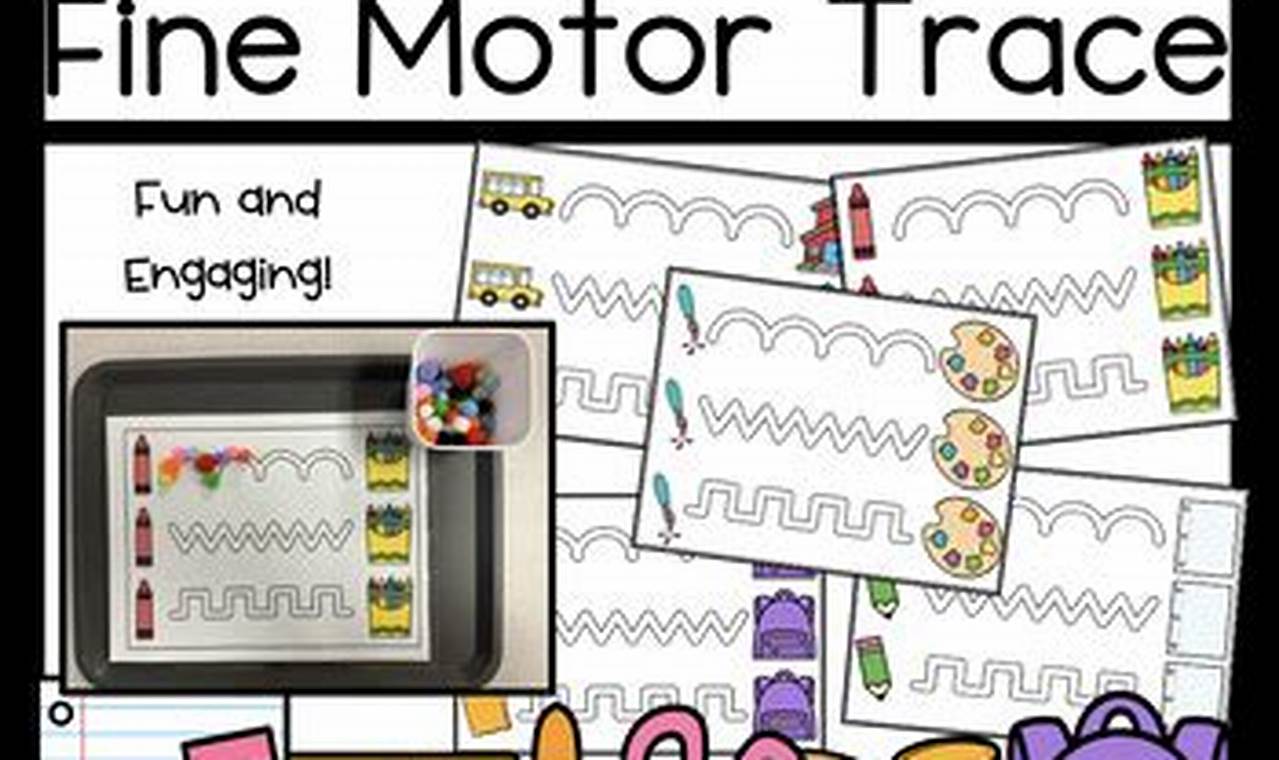Developing fine motor skills is crucial for young learners, laying the groundwork for future academic success. Activities that refine these skills not only improve handwriting and dexterity but also foster concentration and visual-motor coordination. The “fine motor tracing for independent work” worksheet is a valuable tool designed to support this vital aspect of early childhood education.
The primary benefit of this worksheet lies in its ability to enhance fine motor control. By tracing lines and shapes, children develop the small muscle control necessary for writing, drawing, and other essential tasks. Additionally, the independent nature of the activity promotes self-reliance, encourages problem-solving, and boosts confidence as children complete the tasks on their own. Enhanced hand-eye coordination and pre-writing skills are also key outcomes of consistent practice.
This worksheet features a variety of tracing exercises designed to capture and maintain a child’s interest. It includes different types of lines straight, curved, zigzag, and dotted to provide varied challenges. Basic shapes such as circles, squares, and triangles are also incorporated. The format is simple and uncluttered, minimizing distractions and focusing attention on the tracing paths. Ample space is provided for repeated practice, allowing children to refine their movements and build proficiency.
To use the worksheet effectively, first ensure the child has a comfortable writing tool, such as a thick pencil or crayon, which is easier to grip. Begin by demonstrating how to trace the lines or shapes slowly and carefully, emphasizing the importance of staying within the boundaries. Encourage the child to follow the lines from start to finish, maintaining a steady pace. Breaking the worksheet into smaller sections can help prevent fatigue and maintain focus. Positive reinforcement and praise for effort, rather than perfection, can encourage persistence and a growth mindset.
To further support the development of fine motor skills, consider incorporating other resources available on Kidtraces.com. Additional tracing worksheets with varying themes and difficulty levels can provide continued practice. Engaging in activities like playing with building blocks, puzzles, and playdough also reinforces these skills in a fun and interactive way. Simple daily tasks, such as buttoning clothes and using utensils, contribute significantly to enhancing fine motor control.
In conclusion, the “fine motor tracing for independent work” worksheet offers a structured and effective approach to developing essential fine motor skills. Its focus on independent practice, combined with varied tracing exercises, makes it an invaluable tool for parents and educators. Download the worksheet today and witness the positive impact it has on a child’s handwriting, coordination, and overall readiness for future learning. Explore more free worksheets at Kidtraces.com to support continuous learning and skill development.
